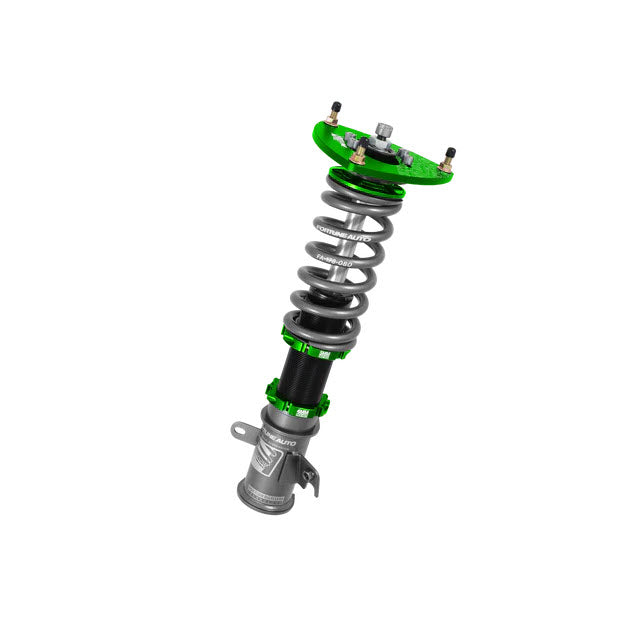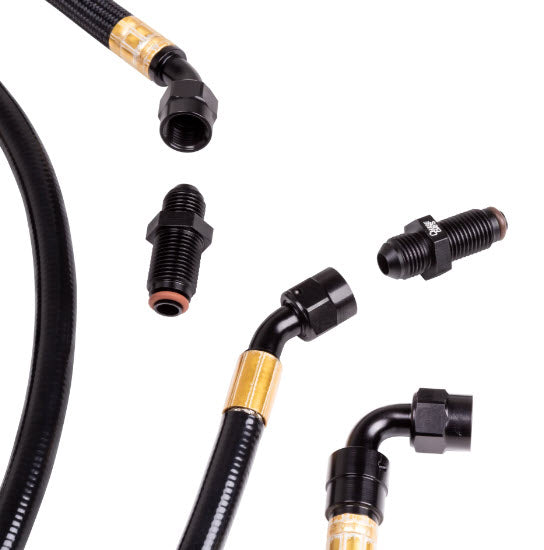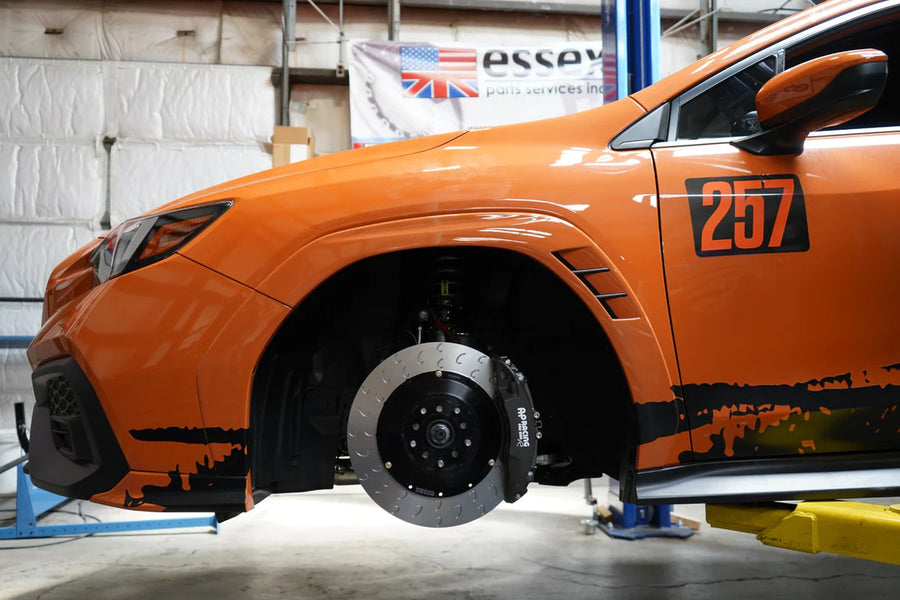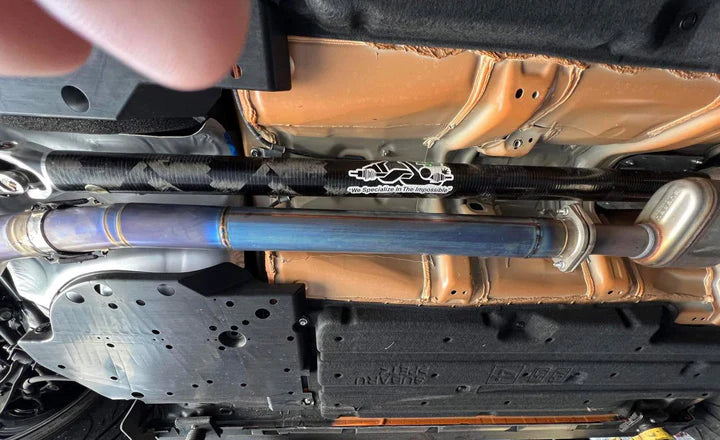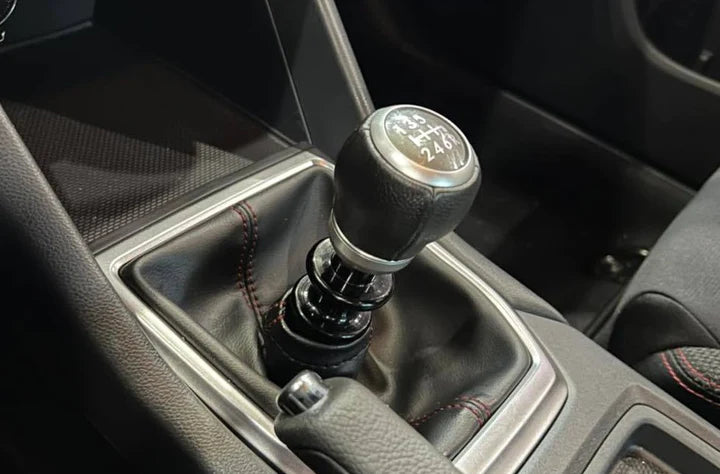What Is a Dyno Test, and What Information Can It Provide?

Have you ever wondered how race cars achieve such jaw-dropping speeds and power? The secret often lies in a meticulous process known as dyno testing. This sophisticated technique uses a dynamometer to measure an engine’s power output, torque, and other critical performance metrics under different conditions. Understanding what dyno testing is and what information it can provide is like unlocking a treasure chest of performance potential for automotive enthusiasts and performance vehicle owners.
Dyno testing can reveal hidden power reserves and optimize your vehicle’s performance by fine-tuning engine parameters and making precise adjustments. Let’s explore how it can elevate your vehicle’s capabilities to euphoric levels, turning your driving experience extraordinary!
What Is a Dyno Test and How Does It Work?
A dyno test, short for dynamometer test, measures a vehicle’s engine performance. But what does this mean in practice? A dynamometer is a machine that simulates driving conditions in a controlled environment. Technicians can gather data on horsepower, torque, and other vital statistics by placing your car on the dyno and running it through various RPM (revolutions per minute) ranges.
The process is straightforward. The technician securely places your car onto the dyno, often a set of rollers for the wheels to rest on. Then, they run the engine at different speeds and loads to simulate real-world driving conditions. Advanced sensors gather data, which the tech analyzes to understand the engine’s performance metrics.
The Importance of Dyno Testing for Performance Vehicles
Dyno testing isn’t just a luxury for performance vehicle owners—it’s a necessity. Why? Because it provides invaluable insights that can make or break your racing experience. Knowing how your engine performs under various conditions allows you to optimize it for peak performance. This means faster lap times, better acceleration, and a more responsive driving experience.
- Performance Validation: After installing new racing car parts, dyno testing ensures everything works harmoniously.
- Optimization: Fine-tuning your engine based on dyno data can lead to significant performance gains.
- Maintenance: Regular dyno tests can identify issues before they become costly problems.
What Information Can Dyno Testing Provide?
Receiving an abundance of data is one of the most thrilling aspects of dyno testing. This data is crucial for making informed decisions about modifications and enhancements. Here’s a breakdown of the key metrics you can expect:
Horsepower and Torque:
Horsepower (HP) measures the engine’s power output, reflecting how much work it can perform over a certain period. Conversely, torque indicates the engine’s rotational force, the twisting power that helps move the car from a standstill or when climbing hills.
Both metrics are vital for understanding your car’s acceleration, towing capacity, and overall performance. A high horsepower and torque balance ensures a vehicle is quick off the line and capable of handling heavy loads efficiently.
Air-Fuel Ratio (AFR):
This metric shows the air and fuel entering the engine, also known as the Air-Fuel Ratio (AFR). An optimal AFR is essential for efficient combustion and peak engine performance. It ensures that the engine receives the correct proportion of air and fuel, which helps maximize power output, improve fuel economy, and minimize harmful emissions. Maintaining the proper AFR is crucial for the longevity and reliability of the engine.
Exhaust Gas Temperature (EGT):
Monitoring Exhaust Gas Temperature (EGT) ensures your engine operates within safe temperature limits, preventing overheating and potential damage. High EGTs can signal potential engine tuning issues, such as improper fuel-to-air ratio or problems with components such as the turbocharger or exhaust system. Regularly checking EGT allows for timely adjustments and maintenance, ensuring optimal engine performance and longevity.
Boost Pressure:
Boost pressure is a crucial performance indicator for turbocharged or supercharged engines. It refers to the pressure the turbocharger or supercharger generates to force more air into the combustion chamber, thereby increasing power output.
Properly managing boost pressure is essential to preventing engine knock, overheating, and other potential issues that could lead to engine damage. Advanced engine control systems and regular maintenance can ensure that boost pressure remains optimal for performance and longevity.
Understanding these metrics enables you to make data-driven decisions about your vehicle’s setup, ensuring it performs optimally on the track.
How Dyno Tests Can Improve Vehicle Performance
Armed with data from a dyno test, you can make targeted adjustments to transform your vehicle from an essential performer to a track-ready beast. Custom tuning lets you optimize your engine’s timing, fuel delivery, and other parameters, significantly enhancing responsiveness and power output.
Upgrading your vehicle’s components, from exhaust systems to turbochargers, can help you identify and address weaknesses in your current setup, yielding substantial performance gains. Early diagnosis of issues, such as air-fuel imbalances or cooling problems, allows you to address potential problems before they escalate, saving you time and money.
The Future of Dyno Testing and Its Impact on the Automotive Industry
Dyno testing is constantly advancing, thanks to technological innovations that enhance precision and accessibility. On the horizon are breakthroughs such as virtual dyno testing, which employs sophisticated simulation software to deliver highly accurate performance evaluations without needing physical equipment.
Integration With AI and Machine Learning
- Future dyno tests could harness AI to optimize performance in real-time.
- Machine learning algorithms might predict potential issues and recommend preemptive adjustments.
Eco-Friendly Testing
- The industry is shifting toward sustainable practices.
- Cutting-edge dyno technology could foster eco-friendly testing procedures, minimizing environmental impact.
Accessibility
- Technological advancements are making dyno testing more affordable and accessible.
- Portable dyno systems could soon be available for DIY enthusiasts to use at home.
These innovations will solidify dyno testing as an essential tool for vehicle performance specialists, ensuring that the future of automotive tuning is thrilling and sustainable.
The Experience of Dyno Testing
Dyno testing isn’t just about numbers and data; it’s an experience that connects you with your vehicle on a deeper level. The engine’s roar and the thrill of seeing those performance metrics climb are euphoric moments for any automotive enthusiast.
You’re not just maintaining your vehicle but unlocking its full potential by understanding what dyno testing is and what information it can provide and incorporating racing car parts into your routine. With the right approach, you can ensure that every drive is exhilarating, whether on the track or the open road.
Incorporate dyno testing and racing car parts into your vehicle maintenance routine and experience a remarkable transformation in performance. Elevate your ride, optimize your setup, and fully engage with the thrilling world of automotive excellence!



